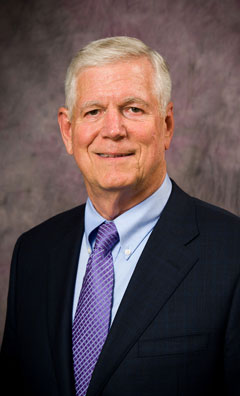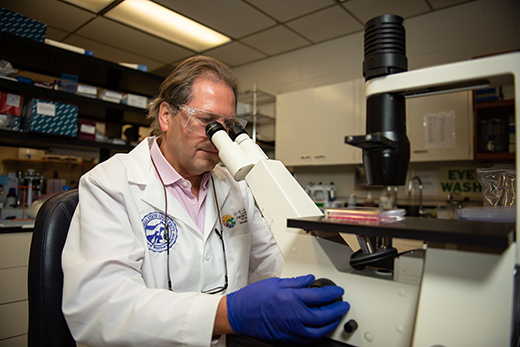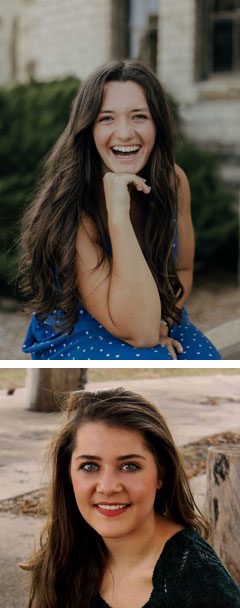11/18/20
K-State Current - November 18, 2020
K-State Current is a weekly news update for the Kansas Board of Regents to apprise the Regents on a few of the many successes and achievements made by K-State faculty, staff and students.
K-State News
Kansas State University cancels fall commencement
 Due to a rapid, uncontrolled increase in positive COVID-19 cases in our campus communities and throughout the state, Kansas State University is canceling commencement activities scheduled for Nov. 20-22. This includes ceremonies scheduled for the Manhattan and Salina campuses. The university will hold a virtual recognition in December, details will be published on the commencement website.
Due to a rapid, uncontrolled increase in positive COVID-19 cases in our campus communities and throughout the state, Kansas State University is canceling commencement activities scheduled for Nov. 20-22. This includes ceremonies scheduled for the Manhattan and Salina campuses. The university will hold a virtual recognition in December, details will be published on the commencement website.
"With hundreds of new cases announced in our host communities in the past few days, the trend line is absolutely going in the wrong direction," said Richard B. Myers, university president. "Concerns have been expressed by our students, faculty and staff not only for their personal health, but with a willingness to look out for the health of fellow K-Staters."
Capacity in the health care community was a major factor in the decision as medical providers and local hospitals are at or beyond capacity due to the recent surge in cases. University officials have been in close contact with county health departments with regard to local situations.
"We understand this will be a disappointment to our students, faculty and staff members who were looking forward to this celebration," said Charles Taber, provost and executive vice president. "Canceling now discourages family from visiting and gathering in Manhattan and Salina this weekend and ensures that commencement ceremonies do not become superspreading events for communities that are already COVID hot spots."
The university will be scaling back other events, including a virtual ribbon cutting for the new Morris Family Multicultural Student Center. Group tours are canceled and the event will be held outdoors to minimize risk for the limited number of participants.
K-State Announces Attendance Restrictions at Bramlage Coliseum
 K-State Athletics announced Tuesday (November 17) that the general public will not be permitted to attend men's and women's basketball games inside Bramlage Coliseum through the remainder of the month of November. The decision follows that of the University to cancel its commencement ceremonies that were set for Bramlage Coliseum Friday through Sunday.
K-State Athletics announced Tuesday (November 17) that the general public will not be permitted to attend men's and women's basketball games inside Bramlage Coliseum through the remainder of the month of November. The decision follows that of the University to cancel its commencement ceremonies that were set for Bramlage Coliseum Friday through Sunday.
The decision impacts the Little Apple Classic men's basketball tournament set for Wednesday and Friday, November 25 and 27, the women's basketball game with Southern on Sunday, November 29 and the men's basketball game with Kansas City on Monday, November 30.
"In concert with the University's decision to cancel graduation ceremonies, this was a prudent decision for us at this time," said athletics director Gene Taylor.
The restriction only affects indoor events at Bramlage Coliseum and does not include the remaining scheduled home football game with Texas on Saturday, December 5.
K-State Athletics continues to plan for 25 percent capacity at basketball games, which has been approved by Riley County, inside Bramlage Coliseum with designated reserved seating in a socially distanced configuration for the remainder of the season.
 Dear K-State community:
Dear K-State community:
This week marks the end of in-person instruction for the fall semester. You have worked hard to deliver quality instruction and learning in trying times. This inspirational effort deserves much praise as we enter the season of Thanksgiving.
As the fall break approaches, we are once again in the throes of a significant increase in COVID-19 cases throughout our local communities, state and country. The virus is a cold, hard foe that does not take breaks or holidays. We’ve collectively learned that it takes the advantage every time we let our guard down.
As we monitor this situation there are several key indicators that are going the wrong way. Positive cases are rising faster than before, positivity rates have reversed their decline in dramatic fashion, and we are seeing strains on the health care system throughout the state. We continue to work closely with public health officials as the situation is changing rapidly.
One bright spot has been that we are still not seeing the virus spread on our campuses, based on contact tracing. To date, there have not been outbreaks associated with classrooms, laboratories, or other academic endeavors. This is surely due to the efforts our faculty, staff and students have made.
Currently, the largest concern is community spreading within smaller gatherings as people let their guard down when around family and friends. Students are being encouraged to get tested for COVID-19 prior to returning home for fall break. We should all be aware of the increased risks of holiday gatherings and take the necessary precautions.
Once again, as we enter the Thanksgiving holiday, I want to sincerely thank you for the tremendous efforts put forth this semester. Please take time to reflect on what has been accomplished by us all. We are in a remarkable time and once again, K-Staters have shown they are remarkable people.
Stay safe!
Richard B. Myers
President
K-State Faculty Highlights
Two K-State studies focus on SARS-CoV-2 transmission in domestic cats, pigs
 Two recently published studies from Kansas State University researchers and collaborators have led to two important findings related to the COVID-19 pandemic: Domestic cats can be asymptomatic carriers of SARS-CoV-2, but pigs are unlikely to be significant carriers of the virus. SARS-CoV-2 is the coronavirus responsible for COVID-19.
Two recently published studies from Kansas State University researchers and collaborators have led to two important findings related to the COVID-19 pandemic: Domestic cats can be asymptomatic carriers of SARS-CoV-2, but pigs are unlikely to be significant carriers of the virus. SARS-CoV-2 is the coronavirus responsible for COVID-19.
"Other research has shown that COVID-19-infected human patients are transmitting SARS-CoV-2 to cats; this includes domestic cats and even large cats, such as lions and tigers," said Jürgen A. Richt, the Regents distinguished professor at Kansas State University in the College of Veterinary Medicine. "Our findings are important because of the close association between humans and companion animals."
There are about 95 million house cats in the U.S. and about 60 million to 100 million feral cats, Richt said.
Richt is the senior author on the two recent collaborative publications in the journal Emerging Microbes & Infections: "SARS-CoV-2 infection, disease and transmission in domestic cats" and "Susceptibility of swine cells and domestic pigs to SARS-CoV-2."
Through their in-depth study at the K-State Biosecurity Research Institute, or BRI, at Pat Roberts Hall, the researchers studied susceptibility to infection, disease and transmission in domestic cats. They found that domestic cats may not have obvious clinical signs of SARS-CoV-2, but they still shed the virus through their nasal, oral and rectal cavities and can spread it efficiently to other cats within two days. Further research is needed to study whether domestic cats can spread the virus to other animals and humans.
"This efficient transmission between domestic cats indicates a significant animal and public health need to investigate a potential human-cat-human transmission chain," said Richt, who is also the director of the university's Center of Excellence for Emerging and Zoonotic Animal Diseases, known as CEEZAD, and the Center on Emerging and Zoonotic Infectious Diseases, known as CEZID.
For the study involving pigs, the researchers found that SARS-CoV-2-infected pigs are not susceptible to SARS-CoV-2 infection and do not appear to transmit the virus to contact animals.
"Pigs play an important role in U.S. agriculture, which made it important to determine the potential SARS-CoV-2 susceptibility in pigs," Richt said. "Our results show that pigs are unlikely to be significant carriers of SARS-CoV-2."
The BRI has provided the high-security laboratories for Richt and collaborators to study SARS-CoV-2. It is a biosafety level-3 and biosafety level-3 agriculture facility that houses important multidisciplinary research, training and educational programs on pathogens that affect animals, plants and insects, as well as food safety and security.
Richt and his collaborators plan further studies to understand SARS-CoV-2 transmission in cats and pigs. They also plan to study whether cats are immune to SARS-CoV-2 reinfection after they have recovered from a primary SARS-CoV-2 infection.
"This research is important for risk assessment, implementing mitigation strategies, addressing animal welfare issues, and to develop preclinical animal models for evaluating drug and vaccine candidates for COVID-19," Richt said.
The research has involved other K-State researchers from the department of diagnostic medicine and pathobiology in the College of Veterinary Medicine: Natasha N. Gaudreault, Jessie D. Trujillo, David A. Meekins, Igor Morozov, Daniel W. Madden, Sabarish V. Indran, Dashzeveg Bold, Velmurugan Balaraman, Taeyong Kwon, Bianca L. Artiaga, Konner Cool, Wenjun Ma and Jamie Henningson, also director of the Kansas State Veterinary Diagnostic Laboratory.
Other researchers involved include Mariano Carossino and Udeni B. R. Balasuriya from Louisiana State University; William C. Wilson with the U.S, Department of Agriculture's Arthropod-Borne Animal Disease Research Unit; Adolfo García-Sastre with Icahn School of Medicine at Mount Sinai; and Heinz Feldmann with the National Institutes of Health's National Institute of Allergy and Infectious Diseases.
K-State Student News
Kansas State Department of Education celebrates two K-State Teachers of Promise
 Two fall graduates were chosen as Teachers of Promise by the Kansas State Department of Education.
Two fall graduates were chosen as Teachers of Promise by the Kansas State Department of Education.
Emily Hammond, senior in elementary education, and Anne Kenworthy, senior in secondary education, were selected for this honor.
The prestigious award is presented to two outstanding preservice teachers each semester after the faculty conducts a review and selection process. Each future teacher is then recognized as a Teacher of Promise by the Kansas Department of Education.
Hammond, from Pawnee Rock, was active with Christian Challenge, a campus ministry, and served as a member of the organization's leadership team from 2017-2019 and is currently working as an intern.
"Christ is my example in everything," Hammond said. "By imitating His earthly life, I am able to love and serve my students with compassion and patience that comes only through my faith in Him."
She graduated from Hoisington High School in 2016 and is the daughter of Rusty and Mira Hammond.
Kenworthy will graduate with two bachelor's degrees — one in education; the other in theatre — and was also selected as an Outstanding Undergraduate awardee.
She believes her academic degrees along with her work with international students have shaped her as an educator.
"Through my cross-cultural experiences, I have become a more empathetic, inclusive and creative teacher," Kenworthy said.
She is the daughter of James and Linda Kenworthy, Manhattan, and graduated from Wamego High School in 2016.